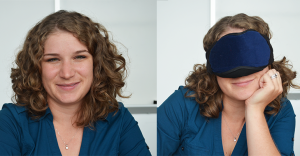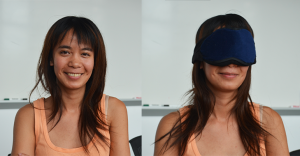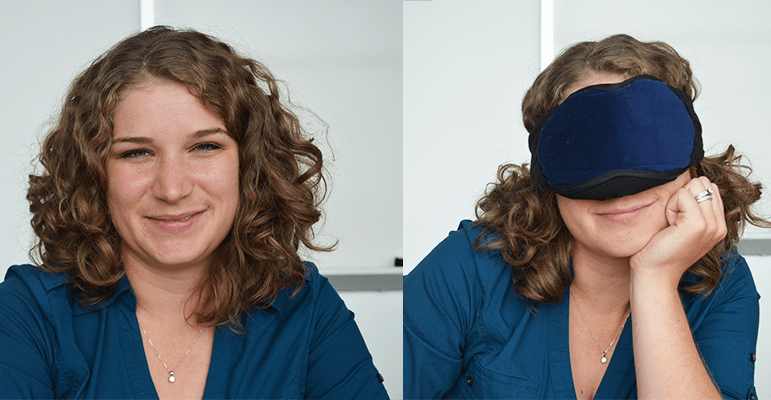A startup founded by Stanford researchers wants to use one second of light while you’re sleeping to cure your jet lag. A sleep mask developed by LumosTech emits the light while the user sleeps, which developers claim make people feel tired three hours earlier or later per use, making it easier for travelers to adjust to a new sleep schedule.

The team adapted the technology from Jamie Zietzer, Stanford researcher, who studies the connection between sleep and light. Through millisecond pulses of light, the masks stimulate light sensitive nerves to affect users’ circadian rhythms without waking them. Though a few other companies utilize light to treat jet lag, this is the only one that works while you’re sleeping.
“It doesn’t preclude you from getting the seven to nine hours of sleep you’re supposed to get, but we can shift when that seven to nine hours happen,” said Vanessa Burns, LumosTech CEO and Ph.D. candidate at the School of Medicine.
According to Burns, travelers naturally recover from jet lag one hour per day, and LumosTech hopes to cut that time into a third. While a stay in London, which is eight hours ahead of California could take a week to adjust to naturally, the mask claims to cure that jet lag in a few days.

The team, comprised of four women, met in an entrepreneurship seminar at the University’s Innovation Farm, where they had to create a business plan based on a technology. For the project, they decided to focus on Zeitzer’s sleep research, who currently serves as a scientific advisor for the company. His work especially appealed to Biquan Luo, Stanford Research Fellow and Chief Marketing Officer of LumosTech — she often flew to China and was well aware of the effects of jet lag.
Currently, LumosTech is beta testing locals who travel by using 15 mostly handmade prototypes. After they get more feedback, they’ll move into production.
Zeitzer’s original technology shifted sleep cycles about 45 minutes, one-fourth of the three hours it boasts now. He and the four scientists will try to further increase that number and to further cure jet lag, one second at a time.
Contact Alina Abidi at alinafabidi ‘at’ gmail.com.
